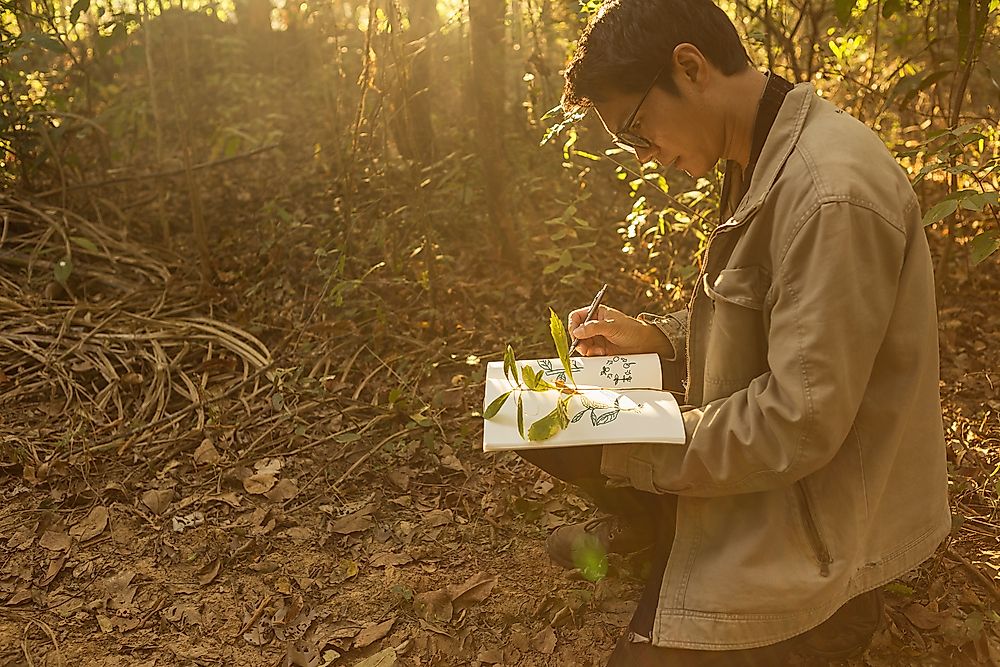What is a Botanist?

A Botanist is a scientist specializing in the field of science known as Botany which is a branch of biology and the study of plant life. Botany is a word derived from βοτάνη, an Ancient Greek word which means grass, fodder, or pasture. Traditionally, the study of algae and fungi by both psychologist and mycologists has been included in Botany. In a more strict sense, current botanists are scientists who are studying approximately 20,000 bryophytes and 391,000 species of vascular plants which include 369,000 flowering plant species totaling up to 410,000 land plant species.
History
Botany is believed to have originated during prehistory when early humans identified herbs and went on to cultivate and gather both poisonous and medicinal plants for food, making botany among the earliest branches of science known as herbalism. Herbalism is the study of plants for medicinal purposes. During these medieval times, there were physic gardens usually attached to monasteries which contained plants of medicinal significance. Such gardens would later become the first botanical gardens for universities that were established around the 1540's and onwards, they were for academic use to facilitate the study of plants. The Padula botanical garden is one of the earliest examples of such. The efforts of universities to describe and catalog their collections resulted in the start of plant taxonomy leading to the binomial system of Carl Linnaeus in 1753 which is still used today.
Important Botanists Throughout the Ages
In recent years, the evolution of botanical science has been boosted by the development of technology. Botany has continued to evolve over the years all thanks to different scientists, such as Leonhart Fuchs and Otto Braunfels who diverted from the old traditional systems that involved replicating earlier works. Instead, they decided to record the observations they made themselves. There is also Bock who developed his system of plant classification. During the years 1515 to 1544, physician Valerius Cordus was the author of "Historia Plantarum" which was of botanical and pharmacological significance. In 1546, he also authored a "Dispensatorium a pharmacopeia" which has had a lasting importance. From 1516 to 1565, naturalist Conrad von Gesner published herbals that covered the medicinal use of plants, with herbalist John Gerard also doing the same between 1545 and 1611. Ulisse Aldrovandi, a naturalist, came up with the natural history which comprised of the study of plants while Polymath Robert Hooke went on to discover cells in living plant tissue.
The Importance of Studying Botany
Botany is essential because plants sustain all animal life by generating the food and oxygen used by human beings and other living organisms with aerobic respiration and the chemical energy to facilitate existence. Plants, cyanobacteria, and algae are among the main groups of organisms that undergo photosynthesis a process that converts carbon dioxide and water into sugars that are used as a source of both organic molecules used in the structural components of cells and chemical energy.Plants then release oxygen, a gas required by almost all living organism for respiration as a byproduct of photosynthesis into the atmosphere. Additionally, plants influence the global water and carbon cycles as their roots stabilize and bind soils thus preventing soil erosion. Plants are a critical component to the future of humankind since they provide oxygen, food, products for people, and medicine. They also create and preserve the soil. In this regard, botanists are important because they help us understand the importance of plants in our day to day lives.











